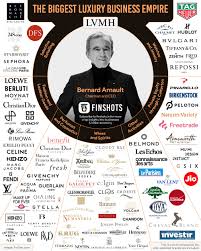Understanding LVMH: A Leader in Luxury Goods

Introduction to LVMH
LVMH Moët Hennessy Louis Vuitton, commonly referred to as LVMH, is a multinational corporation headquartered in Paris, France. It is widely regarded as the world’s leading luxury goods conglomerate, encompassing 75 prestigious brands across various sectors including fashion, cosmetics, and wines. The relevance of LVMH in today’s economy is significant, as the luxury market continues to expand despite economic uncertainties, highlighting consumer demand for high-end products.
Recent Developments
In 2023, LVMH reported a record revenue, driven largely by strong sales in its fashion and leather goods segment. According to the company’s financial reports, sales in this segment have seen a 20% increase compared to the previous year, primarily propelled by the popularity of brands such as Louis Vuitton, Fendi, and Dior. The luxury market benefits from a rebound in global travel and increased demand from high-net-worth individuals, particularly in Asia and North America.
One notable event was the opening of an opulent new flagship store in Shanghai, which has become a tourist attraction in its own right. This investment signifies LVMH’s strategy to enhance its market presence in Asia, where luxury spending is predicted to surge as more consumers enter the upper echelon of wealth. Additionally, LVMH has also invested heavily in digital transformation, ensuring its brands remain competitive in the e-commerce space.
Innovations and Sustainability Initiatives
LVMH is not only focused on growth but also on sustainability. The conglomerate has committed to reducing its environmental footprint by implementing eco-friendly practices across its brands. For instance, they are prioritising sustainable sourcing of materials, energy efficiency in production, and promoting circular economy initiatives. This focus on sustainability is increasingly becoming important for consumers, especially younger generations who are more environmentally conscious.
Conclusion
In summary, LVMH continues to solidify its position as a leader in the luxury goods market. Its impressive revenue growth, strategic expansions, and commitment to sustainability signify its resilience in a changing economic landscape. Looking ahead, analysts anticipate that LVMH will continue to thrive as it adapts to evolving consumer preferences and the complexities of global markets. For consumers and investors alike, LVMH represents a pivotal player in luxury, carefully navigating between tradition and innovation.









